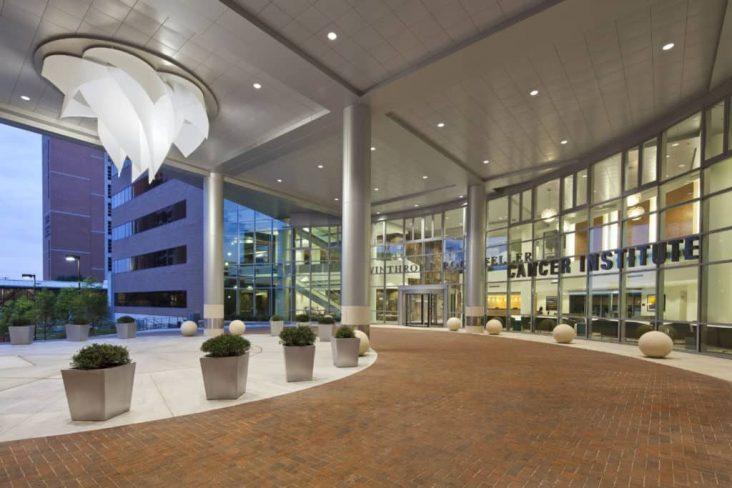UAMS Cancer Center director: NCI designation could take 3-4 years
by February 10, 2020 6:16 pm 1,475 views

The application process for the UAMS Cancer Institute to gain a National Cancer Institute designation could take 3-4 years, its director told legislators Monday (Feb. 10).
Speaking to the House and Senate Public Health, Welfare and Labor Committees, Michael Birrer, M.D., Ph.D., told legislators UAMS is aiming for a submission in the next 2 to 2.5 years, but the process could take 3-4 years.
The process requires a 2,500-3,000-page grant application, and if an applicant fails, it can’t apply again for five years. However, the NCI will inform UAMS if it faces tough competition from large applicants in a given year, Birrer said.
He said an NCI designation sends a message that a facility offers outstanding care, clinical trials and a body of researchers.
“My ability to recruit first-class researchers and clinicians will be much, much easier if we’re NCI-designated,” he said. “This is what people are looking for in their careers.”
Long-term, it could lead to a biotech pharmaceutical park in Little Rock or surrounding areas, he said. Drugs would be tested at UAMS, providing an avenue to hire the medical school’s graduates.
Birrer, an oncologist who specializes in gynecological cancers, came to UAMS in September from the University of Alabama at Birmingham Comprehensive Cancer Center, an NCI-designated facility, and brought $4 million in peer-reviewed cancer research grants.
He said the process for attaining the designation is not “predictive” but is “relatively prescribed.” To qualify, the UAMS Cancer Institute must significantly enlarge its number of lab-based researchers and has already hired three who will bring between $2-$3 million in NCI funding. The Institute also will need to collect $20 million in National Institutes of Health funding. It will need to increase its current 100 patients annually undergoing clinical trials to 300. And it will need to triple the size of its medical oncology offerings. Five physicians are coming in July, but more are needed. They will be given “protected time” for translational research, he said.
Birrer said the National Cancer Institute will want to know what the UAMS Cancer Institute’s catchment area will be.
“Our catchment area is clear. It will be the state of Arkansas,” he said. “I emphasize the state of Arkansas, not Little Rock. It will extend to all four boundaries, and we will sincerely create a functional cancer network which will provide care and clinical trials throughout the state.”
The hospital is raising a mix of public and private funds to qualify for the designation. In 2019, lawmakers created the National Cancer Institute Designation Trust Fund to be funded by medical marijuana tax revenues and a tax of 50 cents per package of 32 sheets of cigarette paper. UAMS Chancellor Dr. Cam Patterson told legislators those taxes are expected to generate $7 million in revenues this year.
Birrer said state funds are the Institute’s “mother’s milk” because they are more predictable and reliable than federal grant funds.
When Senate Chairman Missy Irvin, R-Mountain View, pointed out that Louisiana and Mississippi don’t have NCI-designated facilities, Birrer said Arkansas could become a “cancer center of destination.” Patients would come to Arkansas because UAMS is running a clinical trial not offered in their home states.
He said the NCI has made it clear it wants a designated center in every state.
Asked by Rep. John Payton, R-Wilburn, about the latest good news in the fight against cancer, Birrer called it a “disease of aging.” Some cancers will be cured, while some others will be converted to manageable chronic diseases where patients can live long, happy lives.
“Having said that, 35 years in the business, this is the most exciting time I have ever seen in medical oncology,” he said.
For example, when he was training, metastatic colorectal cancer patients wouldn’t even be treated.
“There is now a subset of those patients who have the tumor, came from the colon, it’s sitting in the liver, multiple metastatic lesions that we can cure,” he said. “By giving these immune checkpoint inhibitors and activating the patient’s own immune system, the metastatic lesions, the tumors in the liver just disappear.”
